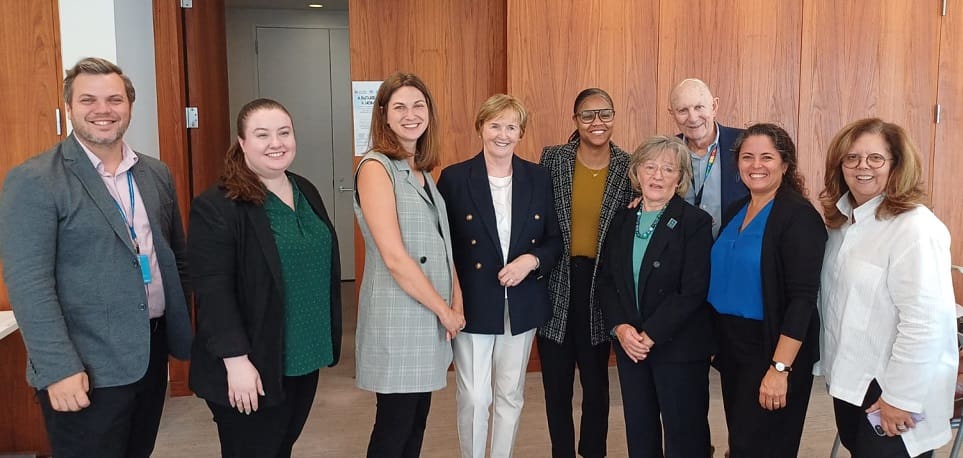
“A future we want: A home for all” was the title of the parallel event organized in New York by the UN Working Group to End Homelessness this past October 5th, to mark “Urban October” on the margins of the 78th Session of the United Nations General Assembly and the Sustainable Development Summit.
The goal of the FHA-sponsored event was to address the intersectionality of homelessness by reflecting on General Assembly Resolution 76/133 (2022) and the UN Secretary General’s first ever report on Homelessness A/78/236, published this past September. On this occasion the WGEH wished to feature the intersectionality between poverty of women and homelessness.
Panelists included H.E. Ambassador Krzysztof Szczerski, Permanent Representative of the Mission of the Republic of Poland to the United Nations, Leilani Farha, Global Director of The Shift and Former UN Special Rapporteur on the Right to Housing Using, Francesca De Ferrari from the UN Habitat New York Office, and Natalie Monteza, Coordinator of the 13 Houses Campaign of the FHA.
All speakers shared their views on progress made by international organizations and some national governments to address homelessness. At the same time, calls were made for making the experience of homeless women and children more visible through both quantitative and qualitative data. All agreed on the need to press on towards a human rights approach and people-centered policies, as homelessness and its structural causes increase.
But the speakers who moved the audience more were the two lived-experience experts on homelessness from 13 Houses projects: Doris A. from Ghana, and Mildred M. from Guatemala. Their captivating testimonies put the spotlight on the main theme of the event, making tangible for those present the specificities of being homeless women.
“I come from a family of eight siblings, in our house we could not all go to school. Due to the economic situation of my family, my mother decided to send me to the house of an acquaintance who lived in a more developed city, where I worked for her even though I was a child”.
The fact of being a girl in a poor family was at the origin of a journey that took Doris to go through the excruciating experience of human trafficking as she sought a better life in Europe.
In the 13 Houses Campaign we have come across these and other examples showing that sometimes, a factor increasing the likelihood of being homeless or amplifying its effects is being a woman. This could be because of reduced opportunities to create a livelihood or access education, increased vulnerability during conflicts, or experiences of domestic violence. However, we have also met the many people in the Vincentian Family concerned with these situations, who decide not to be mere spectators, and are committed to walking side by side and finding solutions with those going through the hardships of homelessness. Many of the 103 projects of the Campaign have provided the necessary tailored attention to each individual case, bringing back hope and allowing people to aspire to a life free from homelessness.
To conclude, the panel discussion provided an opportunity for all stakeholders – persons experiencing homelessness, civil society, Member States, and other experts – to identify the progress that has been made and the challenges that remain, as the UN brings into focus the complex issue of homelessness.
The participation of the FHA in the event in New York shows our commitment to focus on the unique challenges faced by women and girls who seek housing and homeless services. While applauding the progress evidenced by the General Assembly Resolution and noted by the Secretary General, we call for a commitment and a plan to end homelessness, an egregious form of poverty and a violation of the human right to an adequate standard of living and the right to housing.
Natalie Monteza
13 Houses Campaign Coordinator